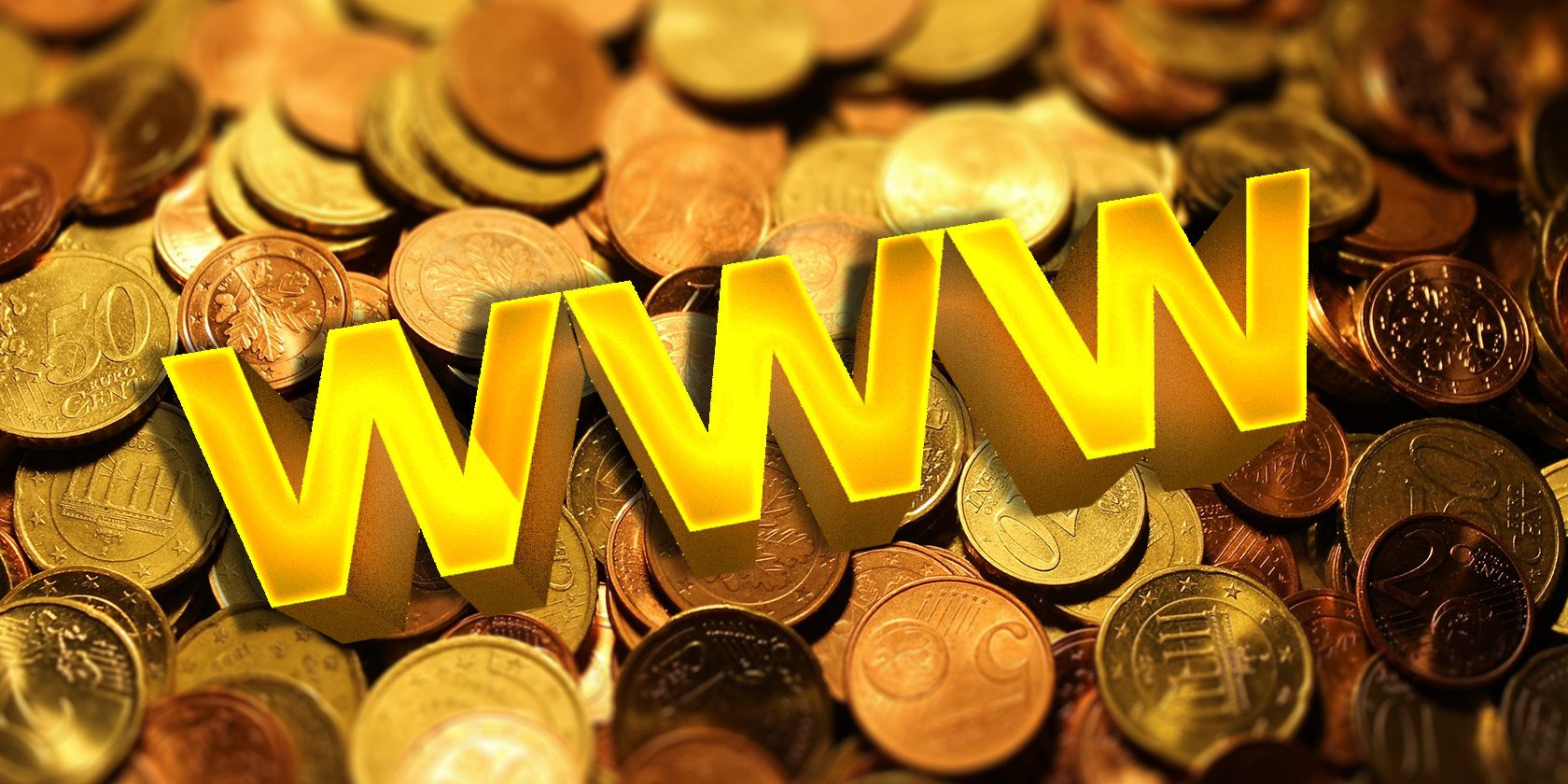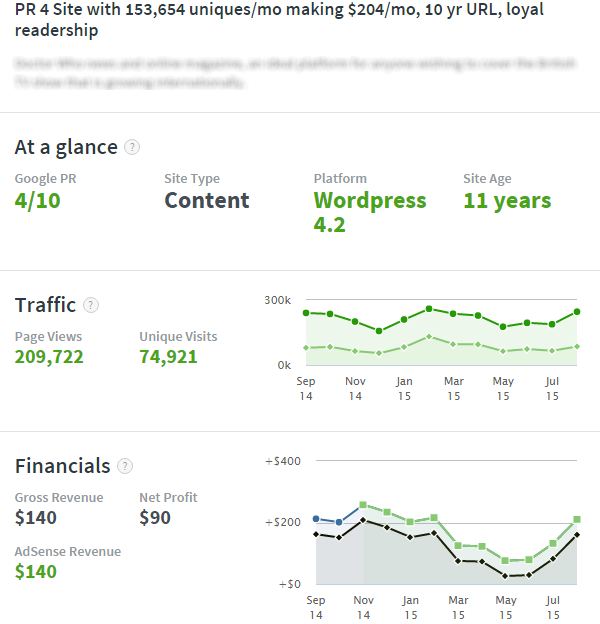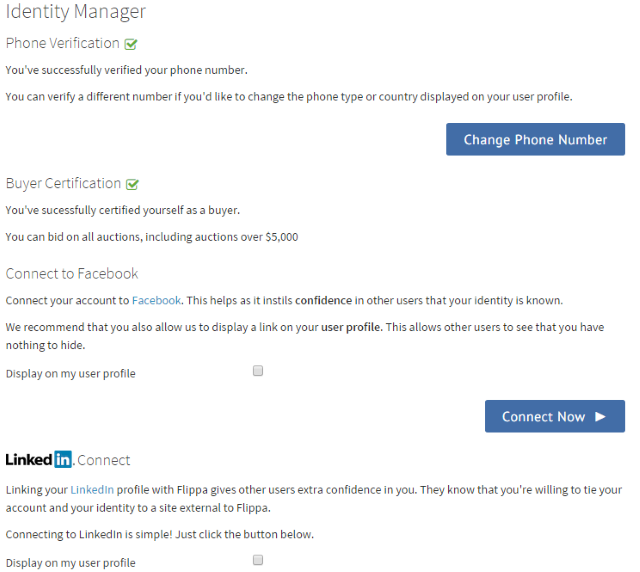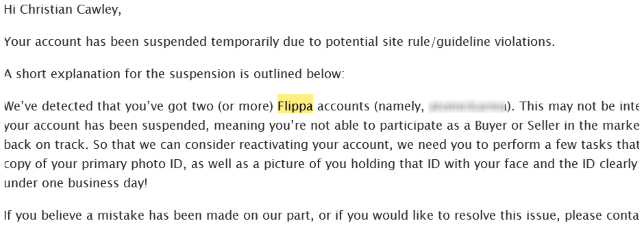Whether you've built your website up for years, or you just created a quick and easy automated blog, the time will no doubt come when you decide it is time to sell your website. But the choices available as marketplaces are limited.
Almost every website trader relies on Flippa.com, which has become the web's de facto website trading platform. But what really happens when you sell your site?
What Happens at Flippa.com
The idea behind Flippa is simple. It’s a sort of eBay where the only category is websites.
Sites and their domain names are put up for sale with a choice of auction or Buy it Now pricing (which you would calculate based on your site's value), and the seller provides a load of useful information to potential buyers, such as audience and revenue.
This information is considered reliable as sellers confirm figures by connecting Flippa to Google Analytics and Adsense accounts. Listing comes with a small fee, but if you fail to sell your site, relisting options are available. Flippa also provides tools to bump up your listing, making it more attractive to buyers with featured placements and so on. Again, this is much like eBay, although the figures involved for such a promotion are quite a bit higher!
At the end of the listing, the website should be sold for something approximating its true worth. Funds will then be exchanged via escrow (Flippa has recently launched its own escrow service) and released once the website is delivered.
Sounds nice and straightforward, right? Unfortunately, Flippa has some of the same issues as eBay when it comes to trust -- and some new ones peculiar to just this site.
Who Are You Trading With? Who Knows?
When it comes to finding a site to buy, or when your listed site becomes the focus of a buyer's interest, it is nigh on impossible to find out who you are truly dealing with. While each buyer and seller has a profile, the information displayed to a potential trading partner is nonexistent until after an offer is accepted.
There is, for example, no way to know if the person you're trading is legitimate until you've agreed a fee and accepted their offer. Their Flippa reputation might be good, but if there is something else you feel you should know about when going into a deal, it's difficult to find out more unless you ask. And that's only if they surrender this information willingly.
Flippa's internal messaging service is vital to your transaction, however, so if you're planning on selling your website, this is where all of the pre-and post-sale discussion takes place. Make sure you have email alerts enabled so you receive the messages in your inbox too.
While Flippa has mechanisms to deal with criminality and fraud, the fact is that - like eBay or Amazon - you can innocently trade websites with a convicted fraudster.
Are You Who You Say You Are?
Flippa works hard to ensure the security of its users. To this end, it employs a seemingly useful account management page, from where you can link your account to Facebook, LinkedIn, etc. in order verify your identity.
It is, of course, all about trust.
But what happens when you breach their terms? What if, perhaps, you have a second account?
This is when things get a bit silly, and Flippa's limits become apparent. While they might have every piece of information about you under the sun (thanks to those links with Facebook and LinkedIn) it still isn't enough.
Slow Support Verges on Kafka-esque
In a recent transaction, I was giving up access to my email account associated with the sold property. So naturally, I opted to ensure that my PayPal account was listed with a different email address, rather than the one I was selling.
The problem here is that I had already registered an account at Flippa.com, my account was suspended. I had no recollection of a previous Flippa.com signup, so this obviously came as a surprise, as did the news that Flippa.com doesn't like email addresses as usernames.
The resulting email was genial, enough, however, so I sent the requested photos of my driving license and one of me holding said card.
Unfortunately, this wasn't good enough. Despite the photographed text being legible to my one-eyed, diabetic, septuagenarian father, it apparently wasn't to Flippa.com's support guy.
So I tried again, simultaneously asking why they didn't provide any evidence of a second account beyond a username (again, I had no recollection of the account) and querying just why I was able to setup an account with my erstwhile email address as username.
And right when all of this was taking place, the buyer of my website was waiting for the suspension to be lifted in order to complete the transaction.
So, it is very easy to breach Flippa's terms completely unknowingly; in this job, I have accounts all over the place, so it comes as no surprise to me that I should have multiple accounts on some services. But a customer service ticket that takes four days to complete and leaves your sale in limbo is somewhat absurd, and certainly Kafka-esque if it leaves your transaction in limbo.
Completing Your Sale
Various data is required for the buyer of your website. As well as the facility to transfer your domain to the new owner (check your URL registration details), you'll be required to make a backup of your site's data, everything from minor text files to images and content. These days, most websites are database driven, so the content will probably be in a MySQL database. A dump of this will be required, and you'll need to agree with the buyer the best method of sending this.
In my recent sale, the site database alone was 8 GB in size (an 11-year old website with multiple daily updates) so Dropbox was used to share the SQL dump. Note that if your site is regularly updated, you may be required - and it's certainly courteous - to stay on top of backups for the few days leading up to completion, so that the buyer has all the material that they need to continue the site. Similarly, details of all sources, contacts and procedures will help the new owner out, along with the all important information about affiliate advertising agreements.
With everything transferred, the buyer will initiate a completion. By this time, you will have already agreed a figure and the funds will have been lodged in escrow. All you need to do is wait while the funds make their way into your nominated bank or PayPal account.
Selling Your Website? Flippa May Not Be The Answer
The above mustn't come across as sour grapes; my website sold, money changed hands, all was well. Many thousands of people have successfully bought and sold their websites on Flippa, and that includes me.
But the fact that Flippa is the only game in town when it comes to buying and selling websites seems to me to be a bit of a problem. No sector should be dominated by one business; monopoly stifles innovation, after all. We've already seen that eBay has been breached again and again, and the regularity with which it issues free auctions these days suggests these problems have hit them hard.
Selling a website on Flippa is as straightforward (albeit slower) as selling a mug on eBay. But if anything recounted above concerns you, I would hope that it will give you reasonable cause to consider an alternative option for selling your website (consider competitor sites or leaders in your niche, for instance, and conduct business securely, using a legitimate escrow service, away from Flippa). You might also consider a website broker to manage the hard work for you.
Have you bought or sold a website on Flippa? Did you experience any problems? Tell us about it in the comments.







